In 480 BC, Xerxes, King of Persia, invaded Greece. He hoped to conquer and subjugate the region, succeeding where his father, Darius, had failed. Athens and Sparta, along with their respective allies, united to drive the Persians from their shores a second time.[1] Their decisive naval victory at the Battle of Salamis arguably changed the course of history.[2]
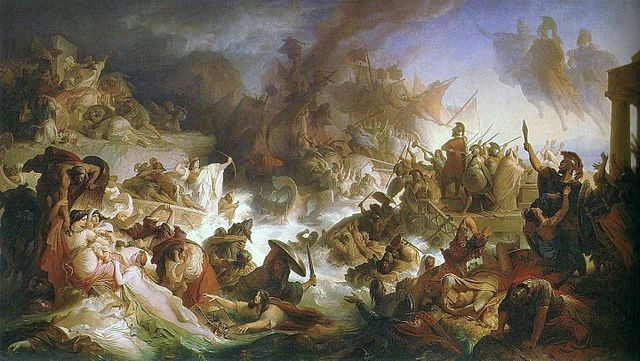
For the next several decades, Greece enjoyed unprecedented growth and prosperity. Athens especially thrived, increasing its population and expanding its democracy to allow greater participation by all citizens. Its unique constitution was embraced by other communities, who looked upon Athens as the preeminent power in the region. Collectively, they formed the Delian League, a powerful naval alliance between Athens and numerous city-states situated on the east and west coasts of the Aegean Sea.[3]
The maturation of its government and economy was surpassed only by its cultural achievements, arguably the richest in all human history. This was the age of the great poets and playwrights—Sophocles, Euripides and Aristophanes—along with the architects who created the Parthenon and other majestic structures. Greek natural philosophers began to seek an understanding of the physical world based on human reason, not the supernatural, while moral philosophers, such as Protagoras and Socrates, laid the foundation for metaphysics and the systematic study of abstract truths.[4]
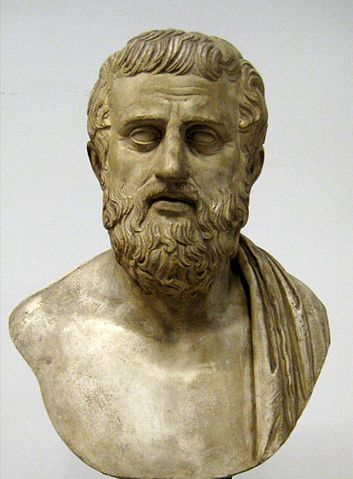
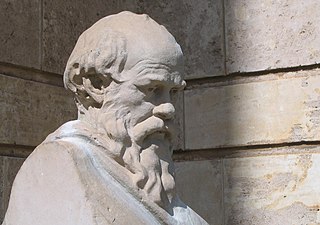
The Athenian alliance had become an empire. But not all were pleased.
Sparta felt threatened by the rising power of Athens so it formed a formidable alliance of its own known as the Peloponnesian (Hellenic) League. Athens’ desire to expand its territory and Sparta’s goal of dismantling the Athenian democratic regime inevitably triggered a war between the two. While it lasted fifteen years, (460 BC – 445 BC), the First Peloponnesian War was peppered with several years of inaction and a few truces. The casualties on both sides were relatively modest, and the war ended in a draw.[5]
In 431 BC, the winds of war blew a second time and did not abate for 27 years. What we call The Peloponnesian War was arguably the most brutal and destructive military confrontation in history. It was marked by torture, the murder of innocent children, the wholesale destruction of cities, and the selling of women into slavery. Each depravation was avenged with even more despicable acts of violence. “Sons were killed by their fathers, and suppliants dragged from the altar or slain upon it.”[6]
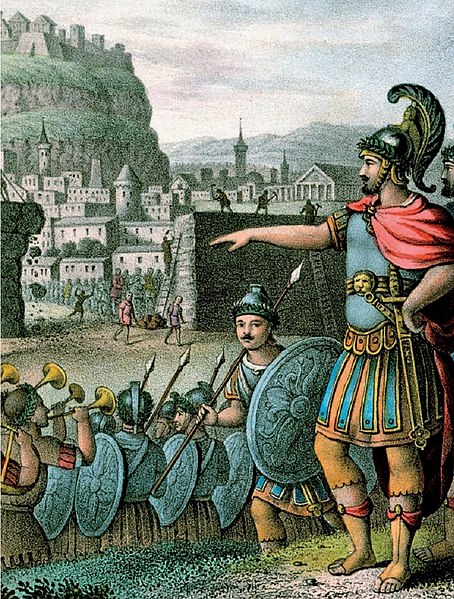
In October 405 BC, Sparta destroyed the remnants of the Athenian navy and, six months later, brought the conflict to an end when it compelled Athens to surrender. All told Attica, the district of east-central Greece governed by Athens, lost one third of its population in the war. To put this in contemporary terms, if the United States had suffered comparable losses during the Second World War, its war dead would have totaled 44 million, more than 100 times the actual number of its fatalities (400,000). But the killing did not stop after the fall of Athens.[7]
Sparta, not content with its decisive military victory, wished to destroy the last vestiges of democracy in Athens. To that end, Lysander, a prominent statesman and Spartan general, gave control over the city to thirty Athenian oligarchs who shared his disdain for popular sovereignty.
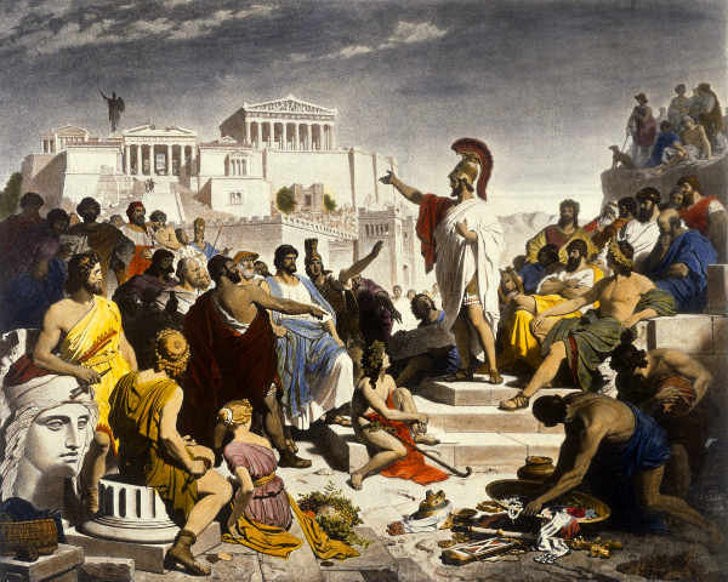
These men, who are known as the Thirty Tyrants, went on a killing spree, executing scores of their political enemies along with wealthy citizens whose riches they coveted. More than 1,500 died at their hands.[8]
Not surprisingly, the Athenians revolted. With Thrasybulus—a prominent Athenian general—as their leader, they defeated the Spartans not once but twice.[9] Athens was free and democratic again, but the possibility of further killing was quite real. Many wanted to prosecute and execute all Athenians who had collaborated with the Tyrants.
Thrasybulus realized this could lead to a civil war from which the city would likely never recover. So he declared, “Enough is enough.” Working with other moderates to achieve peace and reconciliation, he issued a general amnesty to protect all but the worst criminals.
Those who sought protection under the general amnesty, along with all residents of the city, were required take an oath. Specifically, they had to swear: “I will not remember the past wrongs of any citizen except for the Thirty [Tyrants]….”[10] This pledge was essentially a commitment to refrain from violent acts against anyone who collaborated with the Tyrants.
The oath did not forbid simple recollection or require forgiveness, nor did it prevent the aggrieved party from seeking monetary restitution; rather, in this context not remembering a person’s misdeeds was simply a promise to not wield “memory like a weapon” to attack or punish someone or publicly humiliate them—any action that could prompt retribution.[11] Here, “forgetting is a lack of action, not a lack of thought.”[12]
In Greek mythology,[13] the spirits of unforgotten rage, resentment and grievance were called the Furies (Orestes).[14] In Aeschylus’ play, Oresteia, they describe themselves as those who “hold memory of evil” for purposes of exacting blood vengeance.
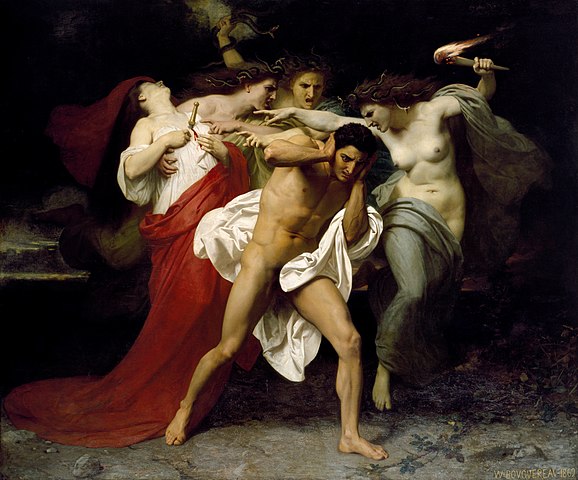
The Athenian amnesty oath was designed to keep those vengeful spirits in check. And it worked, winning glowing praise from Aristotle: “The reaction of [the Athenian Democrats] to their previous calamities, both privately and publicly, seems to have been the finest and most statesmanlike that any people has demonstrated.”[15]
Let us now fast forward eighteen hundred years to southeastern Europe where Orthodox Christian Serbs, who had dominated the region for over 200 years, were about to have their way of life destroyed. For, on June 28, 1389, at the Battle of Kosovo, the Serbs were annihilated by a well-trained army of Muslim Turks, resulting in their absorption into the Ottoman Empire.[16]
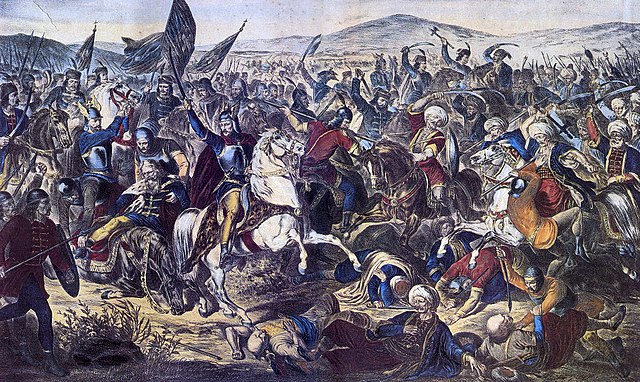
The Serbs mythologized their defeat, portraying it as a noble sacrifice in service of their God. Legend has it that during the battle their leader, Lazar Hrebeljanović, was visited by St. Elijah in the form of falcon who presented him with a choice: “Do you want an earthly kingdom or a heavenly one?” He chose the latter.
But the cruelty, exploitation, and bareness of Turkish rule made the Serbs susceptible to the enticements of the Furies. They filled their hearts with rage and vengeful sadness, animosities embraced, perpetuated and ultimately given expression by later generations.[17]
While Serbia won its independence from the Ottoman Empire in 1878, by the Treaty of Berlin the Austro-Hungarian Empire acquired suzerainty over the Balkans. Relations between the Serbs and their new overlord became tense when the Hapsburgs summarily annexed Bosnia in 1908; they became even worse when the Serbs expanded their territory during the Balkan Wars (1912-1913).[18]
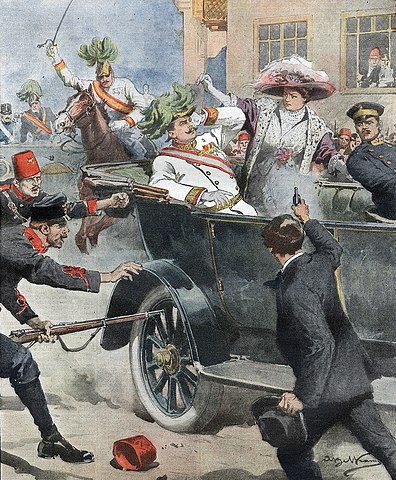
Thus, it came as no surprise that the precipitating event of the First World War was the assassination of Archduke Francis Ferdinand in Sarajevo by a Serbian national. That it occurred on June 28, 1914, the 525th anniversary of the Battle of Kosovo, was no coincidence.[19]
Seventy-five years later when Yugoslavia, of which Serbia was a constituent part, began to disintegrate, the Furies escaped. During the Communist era, the animosities between various ethnic groups—Muslims, Bosniaks, Roman Catholic Croats and the Eastern Orthodox Serbs—were kept in check by the Soviet Union. But as Bosnia sought recognition as a new nation, its Serbian population feared its minority status would severely weaken its stature in the region. So, in 1992, its armed forces commenced killing their Muslim neighbors.[20]
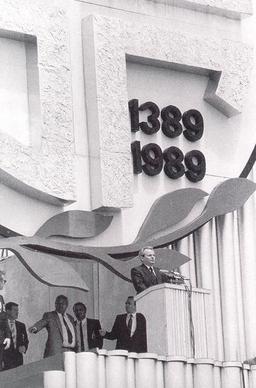
The genesis of this atrocity can be traced to one man, Slobodan Milošević, a Serbian politician skillful in resurrecting past injustices in pursuit of personal power. Three years earlier, he delivered a speech on June 28, 1989, the 600th anniversary of the Battle of Kosovo, where he proclaimed, “Let the memory of Kosovo heroism live forever.” He paired dignity with humiliation, freedom with vassalage, and bravery with suffering. Serbian heroism, he said, “has been feeding our pride and does not allow us to forget that at one time we were an army great, brave and proud, ….”[21]
Milošević’s genocidal campaign forcibly removed hundreds of thousands of Muslims and Croats from their homes, razed mosques and churches, and visited countless atrocities on women and children. He exploited the Battle of Kosovo to preserve “identity by way of mourning without end.” Such “fixed ideas,” according to the French psychologist, Pierre Janet, can make memories impervious to time, something the years can neither expel nor temper. Because they are unforgotten, they threaten to unleash the Furies, the Destroyers of Nations.[22]
Apart from suppressing a desire to seek revenge, discarding unneeded memories can redound to our benefit in surprising ways. The great Christian theologian, St. Augustine, discovered some of the salutary benefits of forgetting while trying to unravel the mystery of time.
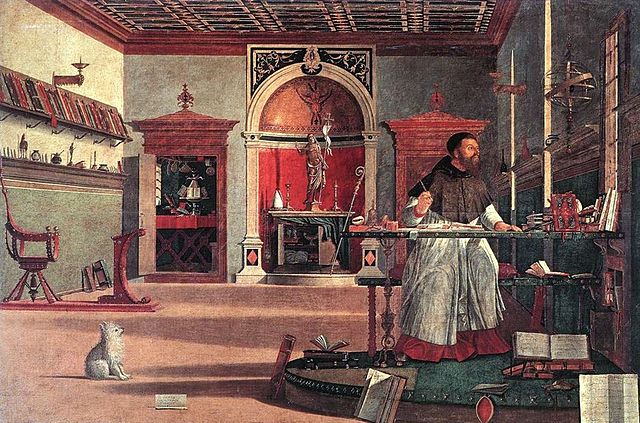
He ultimately concluded that time is not objective because it only exists in our mind. The past, present and future have no separate existence except when we summon them. The past is brought to the fore by memory, the future by expectation; and one of those two determines how we act in the present. This, he believed, was the antithesis of eternity, and eternity is the defining characteristic of God’s realm.[23]
Augustine knew that mankind experiences time as a constraint (i.e., each of us has a finite number of hours and days on earth) and, unlike God, we inhabit an arena of moral contestation where there are few (if any) universally accepted principles. He desired to rise above our corrupted existence and connect with God’s world, but was unsure how. With the help of the Apostle Paul, he discovered that Jesus Christ is “the mediator between temporal beings and an atemporal God.”[24]
In his seminal work, Confessions, Augustine quotes from Paul’s letter to the Philippians but makes some additions to explain the spiritual benefits of forgetting. (Paul’s words from Philippians 3:12-14 are in quotes; Augustine’s additions are italicized):
“[I am not perfect though I pursue perfection] so I might apprehend him [Christ] in whom also I am apprehended”, and leaving behind the old days I might be gathered to follow the One, “forgetting the past” and moving not towards those future things which are transitory but to “the things which are before me,” not stretched out in distraction but extended in reach, not by being pulled apart but by concentration. So I “pursue the prize of the high calling of God in Christ Jesus.”[25]
Augustine is counseling us to let go of the transitory and ephemeral and concentrate on the things of God. But what are those “things”? Returning to the Greeks with whom we began this meditation—actually, one Greek in particular: Cicero—we find our answer: Truth.
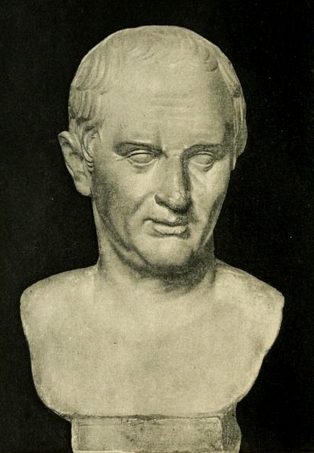
Once his earthly needs and those of others had been met, Cicero desired nothing more than “to see, to hear, to learn something new.” Above all else, he desired “to know the secrets or wonders of creation…to understand that what is true, simple and genuine appeals most strongly to a man’s nature.” With this mindset, he said, “come greatness of soul and a sense of superiority to worldly conditions.”[26]
Cicero’s philosophy is harmonious with the teachings of Jesus since the Savior described himself as “the way and the truth and the life.” But did “truth” perhaps mean something more to Cicero than to us?
The Greek word for “truth” is actually a negative, a-lethe, which means the “not forgotten, the un-concealed.” As the author Lewis Hyde explains, the assumption is that the starting point for our world and our minds “is obscurity and mystery. Those persons who speak the truth have done the work of (or been given a gift for) un-hiding,”of uncovering the truth, of opening our eyes.[27] Their knowledge and wisdom enlighten our minds and nourish our souls and motivate us to live better.
Each of us has the power to do that work, to acquire that gift, to become a person who reveals the veiled, the covered, the dark, and the silent. I can think of nothing greater.
[1] Jennifer T. Roberts, The Plague of War: Athens, Sparta, and the Struggle for Ancient Greece, (New York, New York: Oxford University Press, 2017), pp. 30-32.
[2] See Barry Strauss, The Battle of Salamis: The Naval Encounter That Saved Greece—and Western Civilization, (New York, New York: Simon & Schuster, 2004).
[3] The Plague of War, pp. 33-35.
[4] Donald Kagan, The Peloponnesian War, (New York, New York: Viking, 2003), p. xxiii.
[5] Ibid, pp. 16-18.
[6] Robert B. Strassler, ed., The Landmark Thucydides: A Comprehensive Guide to the Peloponnesian War, (New York, New York: The Free Press, 1996), (3.81.2-5; p. 199.)
[7] Victor Davis Hanson, A War Like No Other: How the Athenians and Spartans Fought the Peloponnesian War, (New York, New York: Random House, 2005), p. 296.
[8] The Plague of War, pp. 287-289.
[9] Ibid, pp. 290-291.
[10] David A. Teegarden, “The Oath of Demophantos, Revolutionary Mobilization and the Preservation of the Athenian Democracy,” Hesperia: The Journal of the American School of Classical Studies at Athens, Vo. 81, No. 3 (July–September 2012), pp. 433-465; p. 459.
[11] Nicole Loraux (Corinne Pace & Jeff Fort translators), The Divided City: On Memory and Forgetting in Ancient Athens, (New York, New York: Zone Books, 2006), p. 149.
[12] Lewis Hyde, A Primer for Forgetting: Getting Past the Past, (New York, New York, Farrar, Strauss and Giroux, 2019), p. 66.
[13] See Electra, by Sophocles and Oresteia, by Aeschylus.
[14] A Primer, p. 63.
[15] The Peloponnesian War, p. 468.
[16] Robert D. Kaplan, Balkan Ghosts: A Journey Through History, (New York, New York: Vintages Books, 1994), pp. 36-37.
[17] Ibid, p. 38.
[18] Ibid, pp. 26, 44.
[19] A Primer, p. 207.
[20] Ibid, p. 208.
[21] “Slobodan Milošević’s 1989 St. Vitus Day Speech, Gazimestan, June 28, 1989, accessed on August 13, 2022.http://www.slobodan-milosevic.org/spch-kosovo1989.htm
[22] A Primer, p. 210.
[23] Ibid, p. 289; Carlo Rovelli, The Order of Time, (New York, New York: Riverhead Books, 2018) pp. 180-182.
[24] A Primer, p .291.
[25] St. Augustine, Confessions, Henry Chadwick, trans. (New York, New York: Oxford University Press, 1991), p. 244.
[26] M. Tullius Cicero, De Officis, Walter Miller, trans. (Cambridge, Massachusetts: Harvard University Press, 1913), p. 15.
[27] A Primer, p. 46.

Some sobering thoughts here, thanks for sharing.
I work in the mental health field and people sometimes come to me with hints of horrible trauma in their past that they can’t quite remember. Sometimes they ask if it’s a problem that they can’t remember. I reassure them that if they have been given the gift of forgetting, we will trust their brain and leave it in the past. I think sometimes it is those that remember the past as if it is still the present who are tortured the most.
Great piece! It represents a challenge for all of us. I love your connection of so many parts of history. Thank you for all your research and careful thought. The one thing I didn’t think about was how many people died in the Civil War. More Americans died in the Civil War than all the other wars we’ve been put together until we got about Korea. Compared to the about 45% of the population of young men from the European countries who died in World War I the Americans lost few soldiers. The memories of this vicious War truly carried over into World War II And generations to come.
You’re quite welcome, Jeff. And thanks for reading.
Michelle, thank you so much for your insightful perspective on memory and forgetting in the context of mental health. As I tried to illustrate with the contrasting stories of Thrasybulus and Milošević, those who are haunted by past traumas and injustices, not only torture themselves but often others. While those who follow after Augustine and Cicero and jettison torturous and useless memories will create room in their minds for truth, discovery and growth.
Karen, you’re right: the European wars of the 20th, as well as the 19th, centuries, have left many scars upon the land and upon the citizens. May we and are children and their children be spared similar conflagrations.
My wife and I have traveled some in the Balkans and can attest that “forgetting” past hatreds is not the norm. In Kosovo, every town has signs at the entrance and exit to the town bearing the name of the town in Serbian-Croatian and Albanian. And in every single little town we went through, one of the names had been crossed out with spray paint. In one small family hotel we were staying in Skopje, Macedonia (now North Macedonia), the owners asked us to have dinner with them and we got to know them a little. They were Macedonian (as opposed to Albanian). Lovely people, very hospitable to us. The husband had an export-import business so had traveled a good bit in Europe. I asked him in all innocence if he’d been to Kosovo, which was only 60 miles away, or Albania, which was maybe two hours away. “NO! Why would I ever want to go to those places?!!”
There is also a lot of misuse of history, as you suggest here. One example sticks in my mind. In downtown Sofia, there are some ancient ruins with a small museum run by the Bulgarian Orthodox Church. We actually have very good records about when the Bulgars came to Bulgaria (circa the 6th century AD). But the signage in the little museum stated that the Bulgars had ALWAYS been in Bulgaria and when I politely asked the priest about the standard history, he became quite aggressive and loud.
The resurgence of such hatreds is heartbreaking because Yugoslavia was a true experiment in overcoming ethnic boundaries. I had a student in my ESL class back in 1994-1997 or so, Sedina, who had been an electrical engineer in charge of the entire grid of the province (and then nation) of Bosnia. Sedina was ethnically Muslim, but was married to a Serb. Her sister was married to a Jew. She told me that they thought they were the “new people,” leading mankind beyond old bigotries.
Thus, when the civil war broke out in Serbia, she stubbornly resisted leaving, believing that the better spirits of her fellow Yugoslavs would win out. She stayed even when a Serbian shell came into her apartment and ruptured the eardrum of her young son.
Sedina and her family lived in one of those rectangular European-style buildings with a courtyard, so that the children could play in the courtyard safe from the Serbian snipers in the surrounding hills. Her son, who was about 10, really looked up to a local Muslim boy of about 14, even to the extent of giving the older boy the precious ball bearings from his skateboard, when the older boy’s board broke.
One day in 1994, for unknown reasons, a fourth grade girl who lived in the building went out the front door of the building and was promptly shot dead by the Serbian snipers. That night, the 14-year-old Muslim boy beat up her son — even though he knew his mother was Muslim — because Sedina’s son had a Muslim last name. That night, Sedina knew she and her family had to leave Bosnia, even though this was dangerous and they would lose almost everything they owned.
One day after English class, Sedina and I were talking in the basement of the church where classes were held. Sedina, who was very smart and accomplished, was working a minimum wage retail job in a fabric store. This was incredibly boring for Sedina and she said, “It’s almost enough to make me want to go back to Sarajevo.”
Having said that, she turned chalk white, pointed at a bathroom we were standing near, and said, “No, I would rather spend the rest of my life on my hands and knees cleaning the floor of that bathroom than go back there.” She paused and said, “This is the best country in the world. But you need to understand that what happened there can happen here too.”
I’ll never forget it. And I’m afraid we as a country are making great strides toward having what happened in Bosnia and the rest of the Balkans happen here too. We all need to get much better at “forgetting” our hatreds and resentments for one another.
As for the more gnostic parts of this excellent essay, I am very impressed that you are able to get through Augustine’s writings. For at least a decade now, I’ve been slowly try to plow through a translation of City of God and always find it very hard going. The quotes you have from Augustine are a little surprising to me, since they sound very much like Paul’s writing about seeing through the glass darkly, which there isn’t much of in the parts of City of God that I’ve managed to finish.
Doug, thank you so much for recounting those experiences. They were riveting. Though I’m a bit peeved because I think they are considerably more interesting and instructive than my essay!
Your experience in the museum of Sofia brings to mind the “Land Acknowledgements” that are all the rage in progressive circles today. While I readily concede that the presence of indigenous peoples in the Americas predates the arrival of the European colonists, there were others who inhabited the American continents before them. And many of those indigenous peoples were notorious for taking each other’s lands by force. None of this excuses the depredations and broken promises of the Europeans. But it is further to your point that it’s all a bit more complicated.
Augustine is a bit of a slog and I’d be liar if I said that I’ve made it through, from start to finish, his writings. It does help if you read a book by a scholar who has studied them in great detail, such as Robin Lane Fox’s “Augustine: Conversions to Confessions.”
In your final paragraph you make reference to Paul’s teaching from 1st Corinthians 13 about “seeing through a glass darkly.” Though what I’m about to say is not germane to the point you were making (with which I agree, by the way), I want to note that most biblical scholars believe the KJV does not translate this verse correctly. Most modern translations (e.g., NRSV, ESV) render this passage as follows: “For now we see in a mirror, dimly, but then we will see face to face. Now I know only in part; then I will know fully, even as I have been fully known.” (Emphasis added).
The mirrors used in the Roman world were formed by a disc of polished metal, not glass, so the reflected image was obscure at best. Thus, I believe Paul is telling us that the discovery process is not just about understanding with greater clarity the importance of our life on Earth and the purpose of Christ’s sacrifice, but it’s also about seeing ourselves more honestly. Truth be told, that is probably the hardest thing for each of us to do.
Thanks again for reading my stuff and sharing your insightful comments. I truly appreciate it.
Eric, I appreciate this kind response, but you’re still way ahead of me. I did buy Robin Lane Fox’s Conversions to Confessions to help me get through Augustine — but I’ve been slogging through that massive book for at least a decade now too.
It’s been a while since I read Paul, but don’t you think there is a definite theme throughout of humans not fully understanding existence and its meaning?
Doug, the short answer to your question is “yes,” which argues in favor of a dual meaning to Paul’s words. That is sort of what I was implying (though my words were a bit ambiguous) when I said that Paul’s message is not just about understanding our existence and its meaning but also about seeing ourselves more clearly.
Paul’s letters, in my opinion, are the most complex theological writings in the New Testament. They’ve been the subject of debate among scholars for centuries. In many respects, his Christianity differs from the version taught by Jesus. And that’s a good thing. Christ expects us, through inspiration, to build upon his teachings, not consider them the last word. A static religion will soon be an extinct religion.